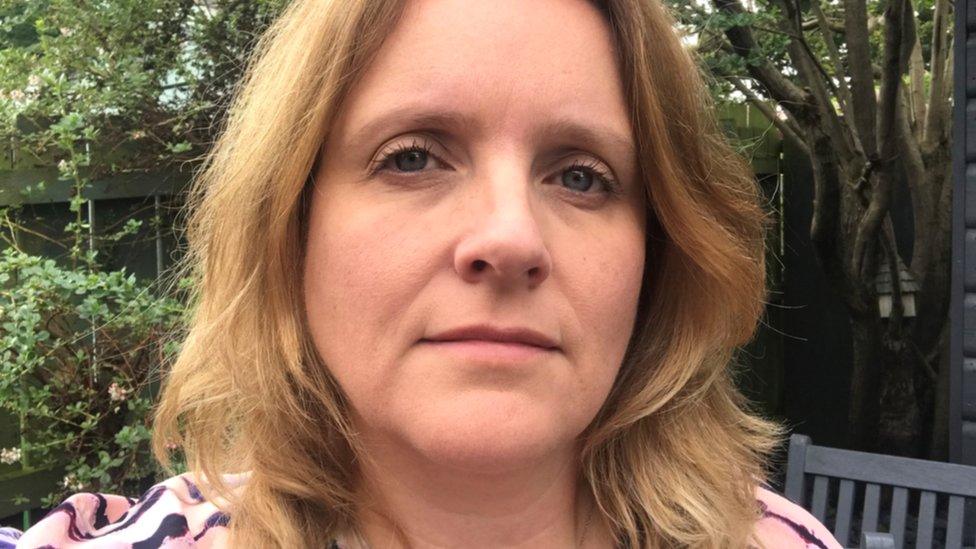What to say to someone who's lost a baby
- Published

A "deep pain" - that's how Chrissy Teigen's described the loss of her third child with John Legend.
The 34-year-old, who was halfway through her pregnancy, said their son Jack died days after she went into hospital.
In the UK, one in four pregnancies ends in miscarriage and about one in every 200 babies in England is stillborn.
And yet, most of us would struggle to find the right words to console a grieving parent.
On Instagram Chrissy Teigen said: "We are shocked and in the kind of deep pain you only hear about, the kind of pain we've never felt before."
And sadly, it's that pain that can be hard for all of us to talk about.

Allow Instagram content?
This article contains content provided by Instagram. We ask for your permission before anything is loaded, as they may be using cookies and other technologies. You may want to read Meta’s Instagram cookie policy, external and privacy policy, external before accepting. To view this content choose ‘accept and continue’.
"If someone has never lost a child they can't begin to understand what you've been through," says Louise.

Louise says her family kept Ellis's memory alive by talking about him
Her son, Ellis, died when he was four days old from Sudden Infant Death Syndrome, which is when an apparently healthy baby dies unexpectedly. It kills more than 200 babies every year in the UK.
"It was the strangers who didn't know what to say," she explains.
"One customer at work said, 'oh don't worry, you're young enough, you can have another baby.'
"Which suggests your baby's life didn't matter.
"Our friends and family were always there for us. As long as they were there it didn't really matter what they said.
"You would talk about other things. It's about bringing some normality back when you've had such a horrendous experience."
Find the words
Sometimes people don't know what to say - so they say nothing. And often, says Kate Marsh, a midwife working with the charity Tommy's, external, that's the worst thing you can do.
"Many people are uncertain about what to say. Many are worried about saying the wrong thing or making it worse.
"The most important thing is definitely saying something," she explains.
"Ideally, saying something along the lines of 'I'm sorry this has happened'."
Use the baby's name
Acknowledging the baby - and using their name - can be important too.
"If you do mention the baby's name and they burst into tears, be assured you did not do anything wrong," says Marcia Jones who works for The Lullaby Trust, external helpline, supporting parents through loss.
"It's just where they are in that moment. The grief is still raw," she explains.
Send a message
And if you're posting rather than speaking face-to-face, don't be put off.
The advice is to keep it short and recognise what that person has been through.
"Depending on how well you know that person offer to take it offline," says Kate.
"You can follow it up with a text or a message in a more personal space to offer your support."
Be available
Experts say be consistent with your offers of help.
Doing the shopping, cleaning or walking the dog are all simple ways to show you care.
Don't be so frightened of saying the wrong thing that you avoid those who are grieving, says Marcia.
"Grief is not a disease, it's a loss."
Louise agrees and says having people acknowledge your baby and their lives is what counts the most.
"I always wanted people to say his name," she explains
"Ellis lived and he was part of our family and still is part of our family."


Follow Newsbeat on Instagram, external, Facebook, external, Twitter, external and YouTube, external.
Listen to Newsbeat live at 12:45 and 17:45 weekdays - or listen back here.
- Published29 September 2020

- Published12 September 2020
